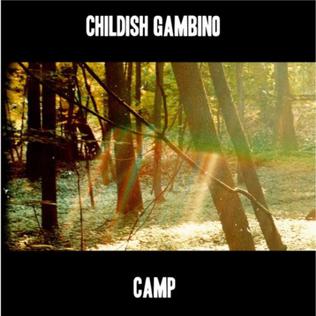 This is my dumb review blog, so I'm going to tell you something about my dumb life for this dumb review of The Vaccines' very good first album. Every so often, my family has a boozy night. Sit around, rehashing old stories, reminiscing about dead pets and old houses and the 90s and old times. This is a recent development. My family never used to care about old times. There weren't any old times to care about. Now I guess there are, and some of them relish the chance to drudge it all up, telling all the old stories like they contain profound revelations that haven't been rediscovered dozens of times in the last year. The tone of these nights is so sincere and so earnest and so desperate to feel. And I'm not one for those. I sit there while members of the family force themselves to feel deep and think about how profound it is that we've been through such things... and I just shrug. I roll my eyes. I'm not into it. Maybe it's because I don't happen to be drinking. I chip in a sarcastic remark every now and again when things get too intense, just to insinuate myself and undercut the melodrama and maybe, unsuccessfully, deflate the scenario to a level that I'm comfortable with. That's me. For all my big talk on the blog, in my day to day life I'd rather be living my day to day life, complete with snide remarks and an acknowledgment that my pain is pretty mundane. I'm a heartless bastard.
This is my dumb review blog, so I'm going to tell you something about my dumb life for this dumb review of The Vaccines' very good first album. Every so often, my family has a boozy night. Sit around, rehashing old stories, reminiscing about dead pets and old houses and the 90s and old times. This is a recent development. My family never used to care about old times. There weren't any old times to care about. Now I guess there are, and some of them relish the chance to drudge it all up, telling all the old stories like they contain profound revelations that haven't been rediscovered dozens of times in the last year. The tone of these nights is so sincere and so earnest and so desperate to feel. And I'm not one for those. I sit there while members of the family force themselves to feel deep and think about how profound it is that we've been through such things... and I just shrug. I roll my eyes. I'm not into it. Maybe it's because I don't happen to be drinking. I chip in a sarcastic remark every now and again when things get too intense, just to insinuate myself and undercut the melodrama and maybe, unsuccessfully, deflate the scenario to a level that I'm comfortable with. That's me. For all my big talk on the blog, in my day to day life I'd rather be living my day to day life, complete with snide remarks and an acknowledgment that my pain is pretty mundane. I'm a heartless bastard.I see myself, that part of myself, in The Vaccines. If an album can be as snide as I tend to be at family dinners, this is. There are big grandiose movements in the music: intense punky energy, operatic U2 moves, power pop, the whole shebang, and then Justin Young undermines the whole thing with his vocals. I don't know how to describe it, his delivery is so bored of emotion, so unconvinced by emotionality, he's the reverse Bono. He makes the music work to win him over. He sneers, "What did you expect / From post-break-up sex?" and it sounds more revolutionary than anything I've heard in the punk section lately. The opening track, "Wreckin' Bar (Ra Ra Ra)" is a lie. He brings this proper dry British sensibility to the music, this stiff upper lip punk that simply will not give. So removed.
Meanwhile, the music itself is quite great: there are hooks, there are riffs and licks and rhythms worth banging one's head to. It's just all disrupted, happily, by the clash between the sound and the voice. The message and its delivery.
And yet it's not cold. It's not like an icy Canadian indie pop album, not a whimpering postpunk, not a brash garage band. It's something more difficult to classify, more difficult to read. It's so flummoxed at the idea of feeling and dealing with other people and searching for that profundity that everyone else seems to access so easily, looking hopefully for things to get so pumped about, as on "If You Wanna" or to be anthemic about on "Wetsuit." It's the audio equivalent of a Greg Daniels TV show: sincere and earnest and whimsical at times, but willing to accept that sometimes things are worth observing because they're so normal. And normal things include meeting people, falling in love, having sex, being bored, getting your heart broken, moving on and wondering why it happened. For all the capacity pop music has to make these events into golden coins, here's one that seems to reveal them, to me at least, as the basic plain bricks that build our lives. When he urges you to "Blow, blow, blow it up" it sounds more like a polite suggestion than a command. When he cries out for "E-e-elenor" it's less pleading and desperate than it is casual and curious. Is there anything worth getting worked up over?
It mashes together the observational quality of The Hold Steady with the Gen-Y passivity of Tokyo Police Club and the "show me something" restlessnes of the Strokes.
Normalcore. What an innovation. Maybe I'm wrong, maybe it's just me, maybe I'm just looking for a way to normalize and understand my own situation, but I think it's worth noting that I got this out of this album, and that that feeling feels so unique. Unique, and yet... ordinary.
PS Guys please don't ever tell my family I talked about them in a music review, I don't want to have that conversation either.
Buy this album now:iTunes Canada // iTunes USA // Amazon.ca
















